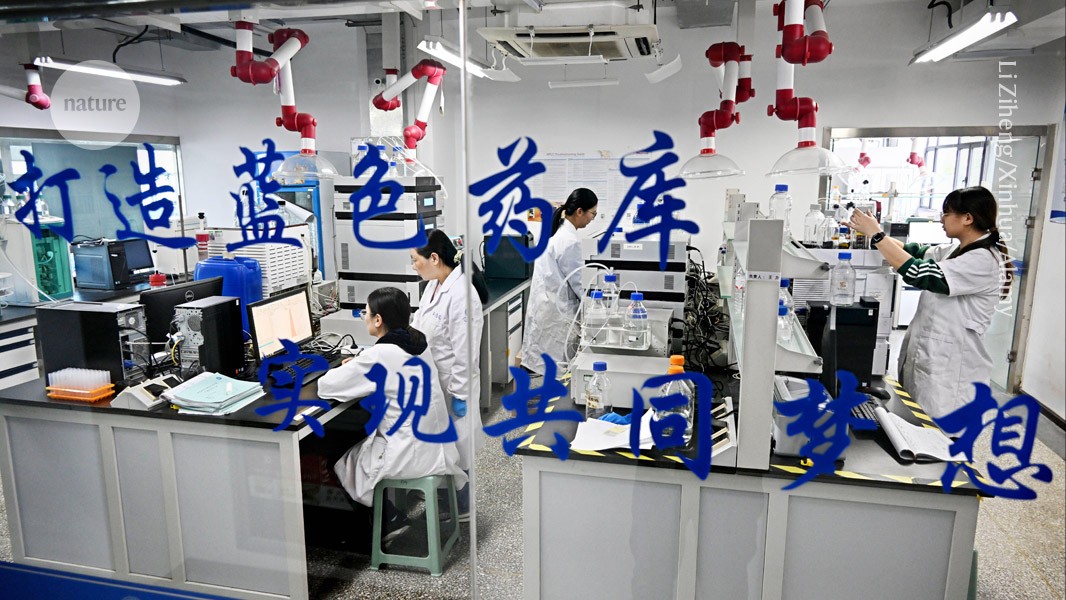How China’s bold talent recruitment has shaped science

Many Chinese researchers have received enviable benefits and positions after returning from training abroad

Credit: Li Ziheng/Xinhua/Alamy
Materials chemist Nan Liu took a career shortcut that many researchers can only dream of. She went from a postdoctoral position in the United States to a full professor at a Chinese university with a research budget of 4 million yuan (US$560,000). Liu, now at Beijing Normal University, was recruited as part of the Thousand Young Talents Plan, a government-run initiative to bring talented overseas researchers back to China.
Over the past three decades, thousands of Chinese researchers who studied or worked abroad have returned to the country through similar talent-recruitment programmes. These recruits — who often receive substantial funding and benefits — have largely had a positive influence on China’s research landscape and contributed to its global competitiveness, say scientists.
Studies have shown that returnees have helped improve research quality, quantity and impact in China, says Lili Yang, who studies higher education at the University of Hong Kong. Many hold key positions in universities or government agencies.
But the funding and other advantages afforded to those recruited through talent programmes have caused some resentment among young Chinese researchers who remain in the country, says Jiang Li, who studies the science of science at Nanjing University in China. “They complain a lot.”
As China’s global science standing has risen, and geopolitical tensions with the United States have intensified, recruitment programmes are increasingly eyeing researchers who studied in China.
Funding and autonomy
Since the late 1990s, China has had several national-level talent recruitment programmes to attract overseas researchers, on top of hundreds of regional and local schemes. Among the largest and most prominent was the Thousand Talents Plan targeting leading researchers and entrepreneurs, which included a ‘youth’ branch for those under 40.
A rough estimate suggests that by 2018, 16,000 scientists and high-tech entrepreneurs had been recruited through various programmes to return to China.
Researchers apply for these programmes after securing a job offer at a Chinese research institute. They typically receive a sign-up bonus of at least half a million yuan, and can access several million yuan in research funding from the government and their host institute. They are also given housing subsidies and preferential treatment when applying for grants.
Around the mid-2010s, participants in the Thousand Talents Plan became a target of US government agencies, who viewed it as a channel for stealing intellectual property and trade secrets, although confirmed cases were rare. The Chinese government has since renamed the programme to the High-End Foreign Talents Plan.
More papers
Researchers have tried to study the impact of China’s talent programmes. A 2023 analysis showed that returnees who joined the youth talent programme between 2012 and 2014 published more papers than did their counterparts who stayed abroad1.
But the picture is more nuanced, say researchers. Broader studies of the scientific output of returnees, who can act as a proxy for the impact of those who returned through talent programmes, have found that they had a higher chance of being corresponding authors than did those who stayed abroad, but were less likely to publish in top-tier journals2. This, and other studies of talent recruits, suggest that returnees might not represent the highest level of international talent and are probably early in their careers, says Li, who was a co-author of the study.
A 2020 study showed that returnees authored papers that were more highly cited than those produced by their local counterparts and maintained strong publishing ties with their international colleagues3. They have “helped to raise China’s profile”, says co-author Caroline Wagner, a science-policy specialist at the Ohio State University in Columbus.
But a more recent analysis of roughly 300 Chinese returnees found that their average citations per publication declined over the five years after their return4. Their number of international collaborators and international citations also dropped over time, which point to the limits of what talent-recruitment policies can achieve, suggest the authors.
Login or create a free account to read this content
Gain free access to this article, as well as selected content from this journal and more on nature.com
or
Sign in or create an accountdoi: https://doi.org/10.1038/d41586-025-02336-w
This story originally appeared on: Nature - Author:Smriti Mallapaty


















